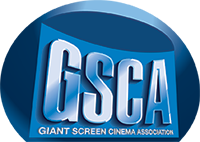 Many museum theaters claim that on average, 20% of their audience is comprised of school groups. There is no doubt that this is a substantial number, but could it be even higher? Do you know, as a museum theater, what percentage of the entire local school market this 20% represents? How can you boost your numbers? And how do you get those harder to reach high school kids into your theater?
Many museum theaters claim that on average, 20% of their audience is comprised of school groups. There is no doubt that this is a substantial number, but could it be even higher? Do you know, as a museum theater, what percentage of the entire local school market this 20% represents? How can you boost your numbers? And how do you get those harder to reach high school kids into your theater?
If you don’t already think of education outreach as a promotional tool, that’s the first mindset you need to adopt to increase your student/teacher attendance. Make sure that your museum education people (or person, as the case may be) are (is) talking to the marketing and PR people. This will help the education folks understand better how to “pitch” a film to local educators and what education assets exist to entice teachers to bring their students to a film (and your museum).
If you are not holding local educator events at least once a year at your theater, you should be! Most film distributors create packages of materials you can hand out at such events, and teachers love stuff for their classrooms. Similarly, if you are not offering teachers free tickets to preview films on their own time, you should institute that program pronto and then promote at schools, educator events, and at the district level.
Speaking of the district level, a good way to do one-stop shopping for all of the schools within reach of your museum/theater is to visit the school district office and talk to HR to make sure they know (and will pass along the word) that teachers can enjoy your venues for free (or similar, whatever deal you can offer them). Then, talk to the Director of Curriculum or head of Community Programs about your museum and theater, emphasizing that you have ready-made materials for teachers and that they are all STANDARDS-BASED.
You can also leave them with the latest research on the power of informal science learning, and 3D films in particular. (Here’s a link to a study about 3D learning: http://www.dlp.com/3dresearch.)
Another channel for reaching educators is by going to local and regional education events/conferences to promote your museum and theater education programs (and the fact that you give teachers free tickets). How to find out when and where they are? Go to the website of your state’s Education Association for starters. All the big content area associations (such as the National Science Teachers Assn.) will have local events on their websites as well. Again, distributors usually create education materials in quantities for you to take to these events.
High schoolers present a particular dilemma, since that is the age where not as many field trips are scheduled (although kids of all ages benefit from museum visits and seeing documentary films). One suggestion might be to “eventize” a high school trip by having an expert answering questions after the film, extending the learning and making it come alive. Slanting such an event as “career prep” is also a good approach, and for that you can seek out local business support. Again, pitching the district office on the benefits of school trips is a good tactic, as is making very good friends with the principal of your local high school! And don’t forget the high school newspaper editors; give them free tickets as you would any member of the press.
Once you get them into your theater, make sure you are encouraging older students to talk about their experience on social platforms. Give them a hashtag!
I know, I know…funding is always at the heart of the school group discussion, but as the real estate market bounces back, so should funding to schools for things like field trips (most school funding is tied to property taxes). How about approaching local businesses or corporations for funding? The numbers aren’t as onerous for funding busses or tickets as they are for, say, mounting an exhibition, and may well be very doable for smaller local businesses. Another good source for such funds is the local Education Foundation if one exists in your school district. These organizations were established to pay for things the district cannot afford (“enrichment”), and field trips often fall into that category for many districts.
The over-arching point here is that you cannot consider education outreach as JUST a way to impart knowledge (although it is, of course) and as separate from our overall marketing efforts. Rather, consider it as one of the strategies you employ for promoting your theater/museum because: (a) students have parents and siblings (read: potential audience members) and (b) students are your future members and donors. Posters in local schools, anyone?
Nikki Lowry is Vice President, Integrated Film Marketing at National Geographic Studios. Her marketing campaigns have won numerous GSCA Achievement Awards.
